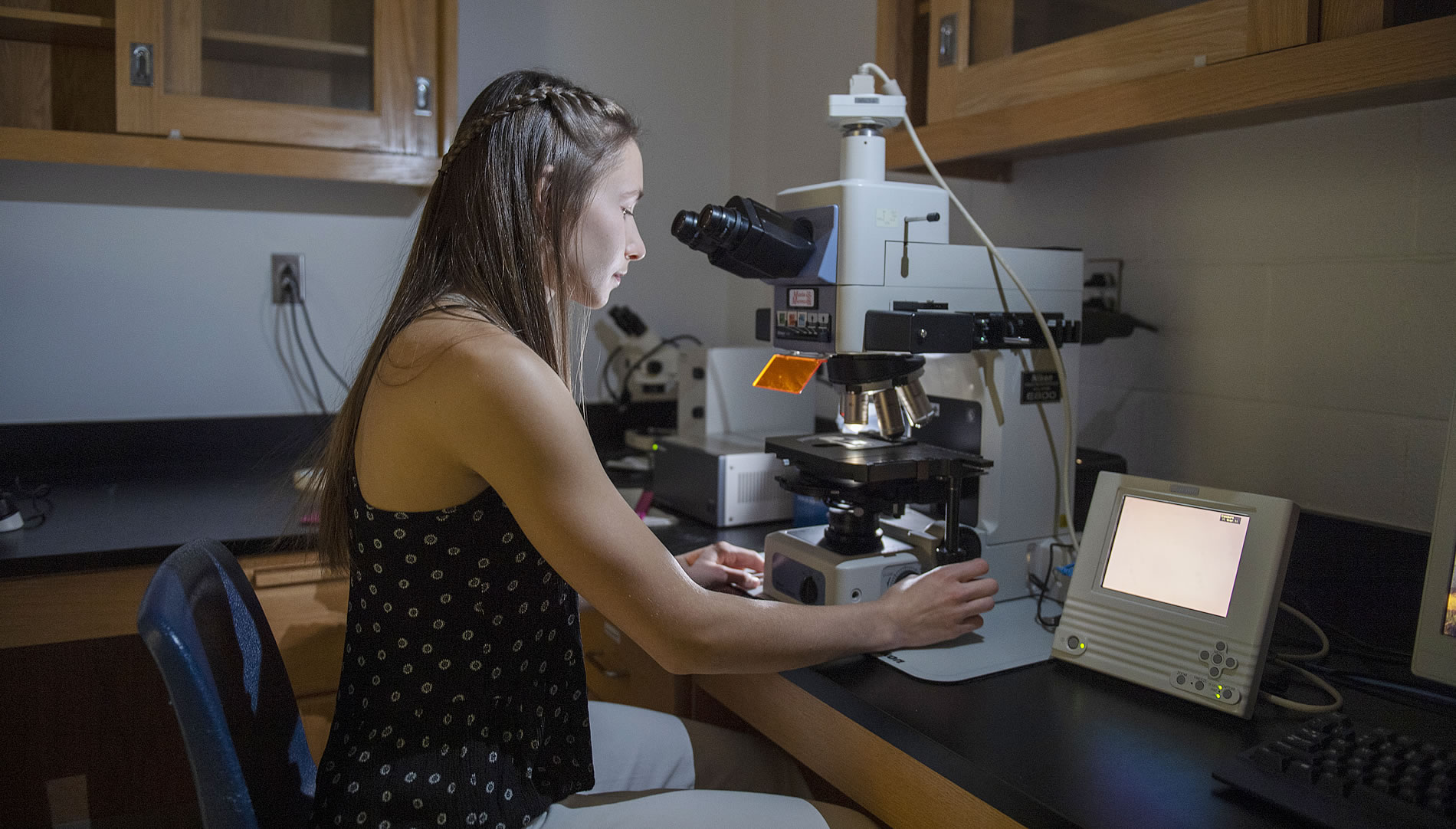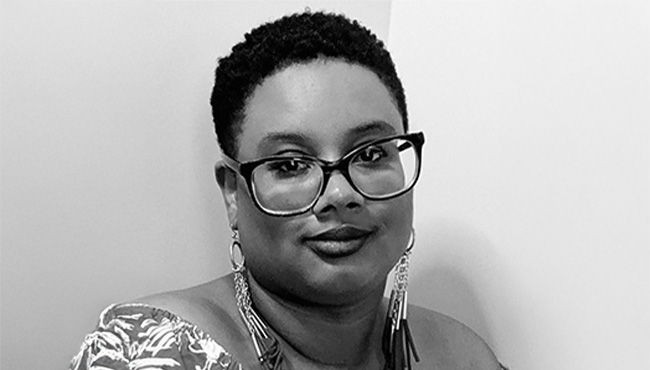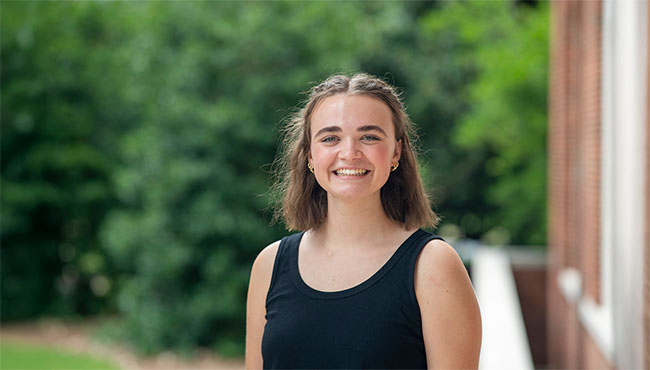Savannah Cecchini ’25 is the mind behind the conservation project on Berry’s campus to rehabilitate a native species of milkweed — Asclepias tuberosa — a critical food source and habitat for monarch butterfly larvae. With deforestation and herbicide use impeding the survival of the plant, monarch butterflies are in decline. This endangered species is vital to the overall ecosystem, as plants and animals depend on it for pollination — and has concerned Savannah since middle school. Her first conservation efforts involved growing milkweed plants from seeds in a personal garden.
Deciding on a college was easy for this biology major. “I chose Berry because of the opportunity to get to know and work with amazing professors and to be able to get hands-on work and research experiences starting the first semester,” she says.
Savannah was assigned a LifeWorks job on campus when she arrived as a freshman — working in the biology department’s teaching greenhouse. Plants grown there are used in student lab work and research, and Savannah began devising a plan to work with milkweed as soon as she could.
“I talked with Dr. Catherine Borer [associate professor of biology] regarding the project idea to grow and rehabilitate milkweed plants on campus, starting from seed in the greenhouse, and she was very supportive of the idea,” Savannah explains. “She has a lot of knowledge on plants and conservation biology and has helped me turn this idea into a reality.”
Guided by Borer, Savannah took Introduction to Scientific Research and refined her project, which focuses on 1) determining the percentage of viability and germination rates for Asclepias tuberosa seeds and 2) using this knowledge to allow for proper storage of seeds to preserve genetic diversity, for efficient rehabilitation of the plant on Berry’s campus and in surrounding areas, and for possible diagnosis of seed deterioration. Borer notes, “In this project, we are also collaborating with colleagues from the Georgia Plant Conservation Alliance, of which Berry is a member.”
Borer encouraged Savannah to apply for the Richards Science Scholarship, which enabled her to write a grant for her research. She also funded part of her education through the William A. Brookshire Foundation Scholarship (part of the Greater Houston Community Foundation that administers a variety of scholarships to college students). “I submitted several essays explaining my future goals and the research and work that I am doing,” Savannah says.
She anticipates attending medical or veterinary school, saying, “Whatever path I choose, I will continue to work on sustainability and conservation projects and strive to have a positive impact on the world around me.”



